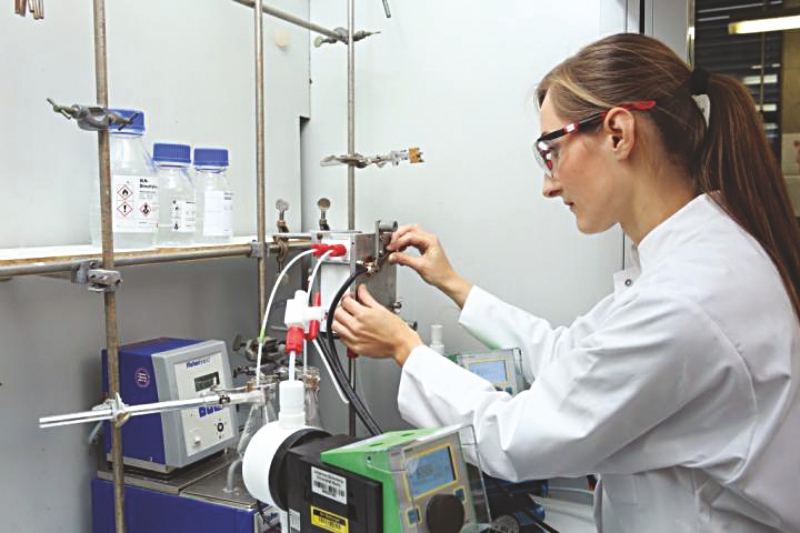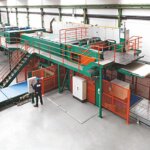Researchers at Johannes Gutenberg University Mainz (JGU) are participating in a joint project that aims to develop new electrolytes for redox flow batteries based on lignin, which is a waste product of the wood pulp manufacturing process.
October 11, 2017

With the increasing use of renewable energies, stabilizing electricity networks is becoming an ever greater challenge. Redox flow batteries could represent a major contribution to solving this problem. Researchers at Johannes Gutenberg University Mainz (JGU) are participating in a joint project that aims to develop new electrolytes for redox flow batteries based on lignin, which is a waste product of the wood pulp manufacturing process. The Mainz-based team of chemists and their partners in industry and the academic world are thus working towards identifying renewable raw materials that will allow a more efficient generation of sustainable energies.
To date, the metal vanadium has been mainly used in flow batteries but its availability is limited and it is also expensive. For Professor Siegfried Waldvogel’s team at the JGU Institute of Organic Chemistry, this project provides them with access to a new research field in which they can bring to bear their many years of expertise in the sector of electrochemistry.
The aim of the researchers is to produce suitable redox pairs that can be used in redox flow batteries from lignin, the substance that provides for stability in wood and plants in general. These redox pairs are charged in the electrolyte of flow batteries and are then stored in separate tanks. When required, they are subsequently recombined in a galvanic cell to generate energy. “By subjecting the waste sludge from paper and pulp production to electrochemical decomposition we can obtain quinones, which we can then further process so they are suitable for use in organic batteries,” explained Mr. Waldvogel. The project is being funded by the German Federal Ministry of Food and Agriculture to January 2019.



